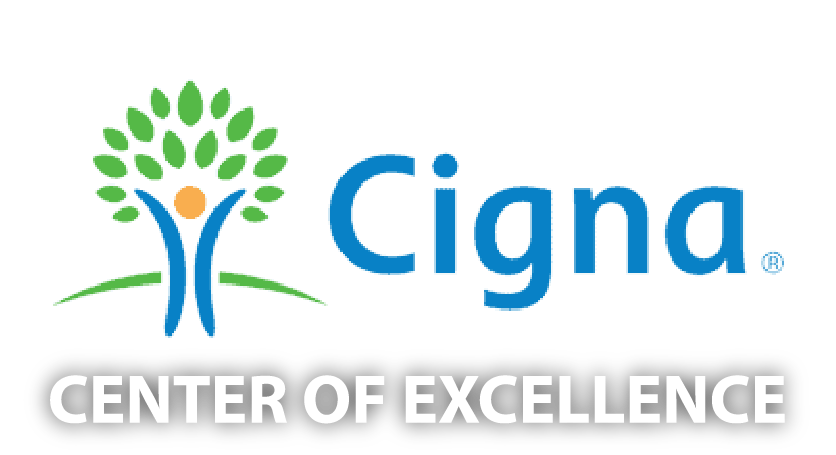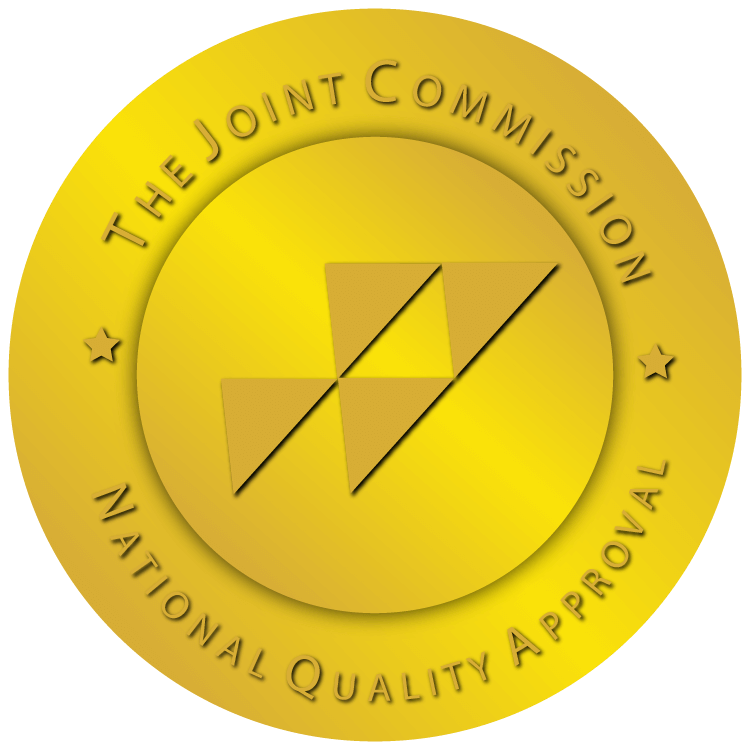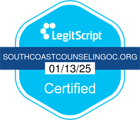What is schizophrenia? Schizophrenia is a serious mental condition characterized by distorted thoughts, feelings, and behaviors that can impact a person’s ability to think clearly, make decisions, and relate to others. It’s like a disconnect from reality that can manifest in a variety of ways.
If you want to understand schizophrenia better and how it connects to addiction and other mental health challenges, now is the time to learn more. The more you know, the better prepared you’ll be to recognize the signs, support others, or get help for yourself.

Symptoms of Schizophrenia
For many people, the first signs appear during what’s called a “psychotic episode.” That’s when someone might suddenly seem very disconnected from reality, such as hearing voices, believing things that aren’t true, or acting in ways that don’t match what’s going on around them.
The National Institute of Mental Health (NIMH) indicates that this condition often starts when you’re between 16 and 30 years old. In men, signs of schizophrenia usually start in the late teen years or early 20s. In women, they often begin in their late 20s or early 30s.
A person having schizophrenia exhibits the following symptoms:
- Delusions – You may believe things that aren’t true. For example, you might think someone is out to get you, that you’re super famous, or that something bad is about to happen, even if it’s not real.
- Hallucinations – You might hear, see, or feel things that others don’t. Hearing voices is the most common. These feel very real to you, even if no one else can hear or see them.
- Confused speech or thinking – You might jump from one thought to another or say things that don’t make sense. It can be hard for others to follow what you’re trying to say.
- Unusual or disorganized behavior – You may act in ways that seem strange or have trouble doing everyday things like following directions or staying on task. Sometimes people move in odd ways or stop moving at all.
- Negative symptoms – You may lose interest in things you used to enjoy. You might stop showing emotion, talk less, avoid people, or stop taking care of yourself, like not bathing or dressing properly.
These symptoms can make daily life challenging, but with the right support and treatment, many people learn to manage their symptoms and live meaningful lives.
How Common Is This Diagnosis?
Schizophrenia affects about 24 million people around the world. That’s about 1 in every 300 people. Among adults, it’s more common; it affects 1 in every 222 people. In the U.S. alone, about 0.25% to 0.64% of people may have schizophrenia or a similar disorder.
Around the world, the number is close, between 0.33% and 0.75% of people living outside hospitals or care centers.
Schizophrenia can look like other mental health problems, and doctors use different ways to diagnose it. Because of this, studies often group schizophrenia with similar conditions when counting cases.
What Causes Schizophrenia?
Experts aren’t exactly sure what causes schizophrenia. But most believe it happens because of a mix of genes and life experiences.
Some people may be born with a higher chance of getting it. Then, things like stressful events or using drugs can trigger the symptoms.
It’s important to know:
Schizophrenia is NOT the same as having a “split personality,” and it doesn’t usually make someone violent.
The Link Between Schizophrenia and Addiction
If you or your loved one is living with schizophrenia, there will likely be a struggle with addiction, too. That means you might use drugs or alcohol to try to feel better or escape scary thoughts or feelings. But using substances often makes things worse; it can make your symptoms stronger and harder to manage.
A study in the Journal of the American Medical Association found that about 50% of people with schizophrenia also deal with substance use problems.1 Another paper from the American Journal of Psychiatry explained that people with schizophrenia are more likely to use alcohol, cannabis, and stimulants, which can make symptoms like delusions and hallucinations worse.2
Researchers think this happens for a few reasons:
- Self-medication – You might use drugs or alcohol to try to calm your mind or reduce fear or sadness.
- Brain chemistry – Schizophrenia and addiction can both affect how your brain handles dopamine, a chemical linked to pleasure and reward.
- Stress and environment – If you’re dealing with stress, poverty, or trauma, it can raise your risk for both schizophrenia and substance use.
If you’re living with both schizophrenia and addiction, getting the right help can be harder, but not impossible. Treating just one problem is tough enough, but when both happen simultaneously, it can be confusing for you, your family, and even doctors.
Complications to Mental Health Treatment
When you use drugs or alcohol while dealing with schizophrenia, it can:
- Make your symptoms worse, like causing more hallucinations or confusion
- Make it harder to take medication, because substances can interfere with how your meds work
- Cause more hospital visits, or make it harder to stay in treatment
- Lead to risky behavior, which can put your safety at risk
A study in the Psychiatric Rehabilitation Journal said that people with both schizophrenia and addiction are less likely to stick with treatment plans.3 Another paper in Addictive Behaviors showed that addiction can lead to more relapses, more time in the hospital, and more trouble with daily life.4
Doctors call this a dual diagnosis. And it’s important to know: treating both at the same time in one plan, not separately, works best. This is called integrated treatment.
How Is Schizophrenia Diagnosed?
A doctor or mental health professional can figure out if you (or someone you care about) has schizophrenia by asking questions, listening to the symptoms you describe, and watching how you act. They’ll also check to make sure something else isn’t causing the problem.
To be diagnosed with schizophrenia, here’s what usually needs to happen:
- You need to have at least two main symptoms, like hearing voices or confused thinking.
- The symptoms must last for at least one month.
- The symptoms must affect your daily life, like your job, school, or relationships.
Doctors use a guide called the Diagnostic and Statistical Manual of Mental Disorders (DSM-5) to help them make the diagnosis.
With the right support, you can manage both. You’ll likely need a team: mental health doctors, addiction counselors, maybe even peer support groups. And you don’t have to figure it all out alone.
Getting Support and Treatment
It’s not always easy to know when you or someone you love needs help, especially when dealing with schizophrenia and addiction. But paying attention to certain symptoms, as mentioned above, can make a big difference.
Getting help early can stop things from becoming worse and give you the tools to feel better and live more fully.
At OceanRock Health, you can get treatment for both substance use and mental health issues in one place. Their team understands the challenges of living with schizophrenia and addiction and will help you create a plan that works for your life.
If you’re looking for expert care focused on schizophrenia itself, South Coast Counseling’s Schizophrenia Treatment and Therapy offers the kind of focused support that can help uncover what’s really going on and what to do next.
Reach out today. The sooner you act, the better the chance for healing, hope, and a healthier future.

Sources:
- Regier, D. A. (1990). Comorbidity of Mental Disorders With Alcohol and Other Drug Abuse. JAMA, 264(19), 2511. https://doi.org/10.1001/jama.1990.03450190043026
- Green, A. I., Drake, R. E., Brunette, M. F., & Noordsy, D. L. (2007). Schizophrenia and Co-Occurring Substance Use Disorder. American Journal of Psychiatry, 164(3), 402–408. https://doi.org/10.1176/ajp.2007.164.3.402
- Drake, R. E., Mueser, K. T., Brunette, M. F., & McHugo, G. J. (2004). A Review of Treatments for People with Severe Mental Illnesses and Co-Occurring Substance Use Disorders. Psychiatric Rehabilitation Journal, 27(4), 360–374. https://doi.org/10.2975/27.2004.360.374
- Mueser, K. T., Drake, R. E., & Wallach, M. A. (1998). Dual diagnosis. Addictive Behaviors, 23(6), 717–734. https://doi.org/10.1016/s0306-4603(98)00073-2












